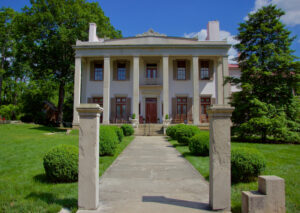United Methodist Church Lifts 40-year Ban on LGBTQ+ Clergy: How Nashville is Affected
The United Methodist Church Shows a Leap Towards Progress
The United Methodist Church (UMC) has lifted its historic 40-year ban on LGBTQ+ clergy. This groundbreaking decision constitutes a notable shift for the Methodist Church, signifying a move towards unreserved acceptance and inclusion regarding the role of LGBTQ+ individuals in religious life.
Making Waves in Nashville
In Nashville, Tennessee, this announcement holds profound significance. The repercussions of this decision are likely to have a substantial effect on the faith community throughout the city. For those who have long felt ostracized or unwelcome within the church because of their sexual orientation, the UMC’s decision represents a beacon of hope and progress.
Nashville’s Local Response
Throughout the city of Nashville, locals like Eric A Patton, a Welcoming Ministry member at the Belmont United Methodist Church, felt a wave of relief following the decision. As a member of the LGBTQ+ community and the church for over a decade, Patton had lived under the ban for his entire membership. He explains, “I’m a member of the Methodist church but ordained in a separate ministry because I’m not allowed to be ordained by my church until today.” Patton’s story is shared by many who have felt their call to serve effectively stymied by the ban.
Implications of the Decision
With an overwhelming 95% of UMC delegates in favor of the ban repeal, the decision sends a potent message that the Methodist Church is seeking to become a more diverse, inclusive, and accepting place. Unfortunately, the lifting of the ban has followed the departure of approximately one-quarter of the U.S. churches within the UMC. However, individuals like Eric still feel the positive impacts of the new ruling.
Looking Forward
With the ban lifted, the future offers promising prospects for the LGBTQ+ community within the UMC. Although the decision doesn’t yet eliminate all roadblocks faced by LGBTQ+ clergy—district superintendents are still forbidden from penalizing clergy for either performing or refusing to perform same-sex marriage ceremonies—it represents a substantial step towards fairness and equality.
A Period of Celebration and Anticipation
The lifting of the ban incites both celebration and anticipation for the future, despite the long road to full equality within the Methodist Church. Supporters of the change within Nashville and across the globe are optimistic to see how this decision can pave the way to more substantial transformation within their religious bodies.








